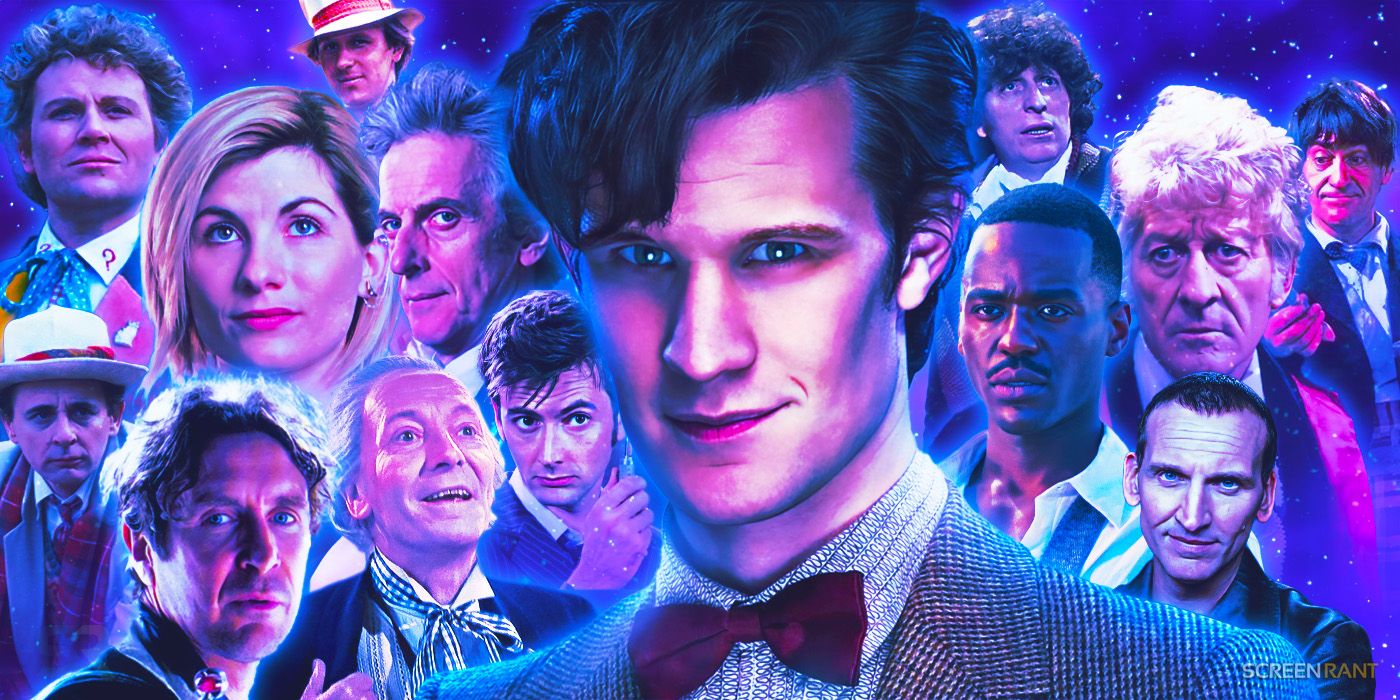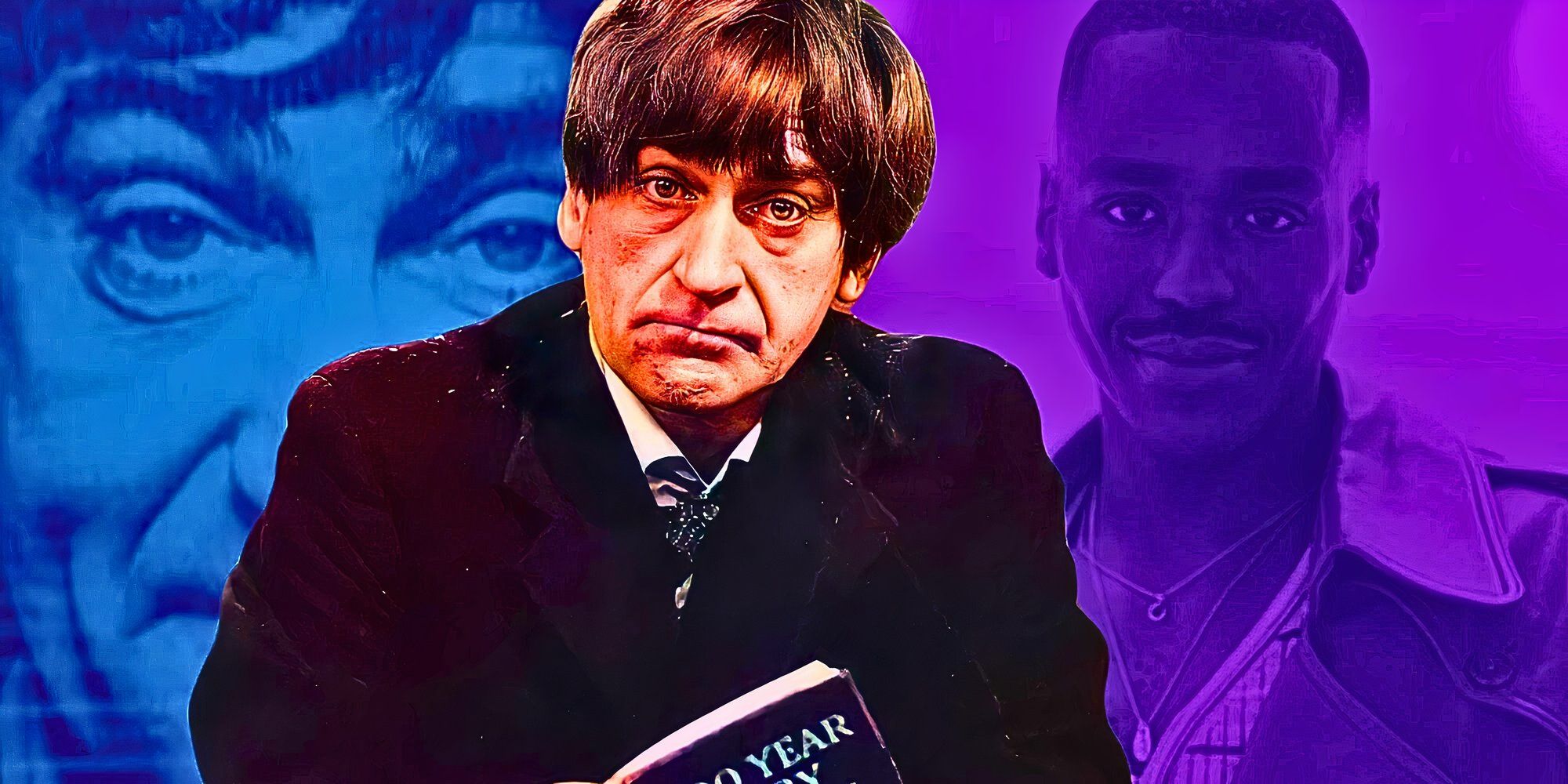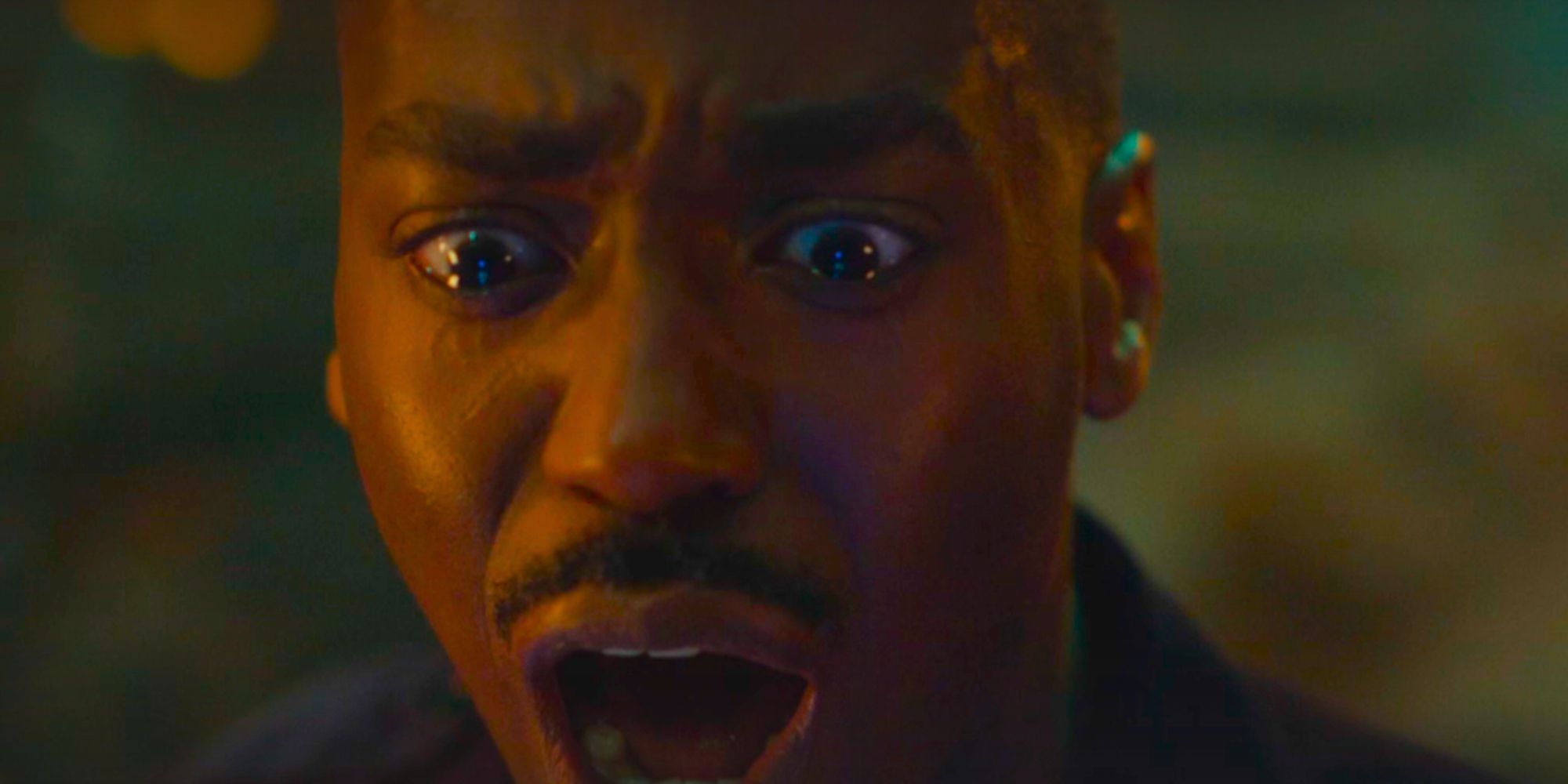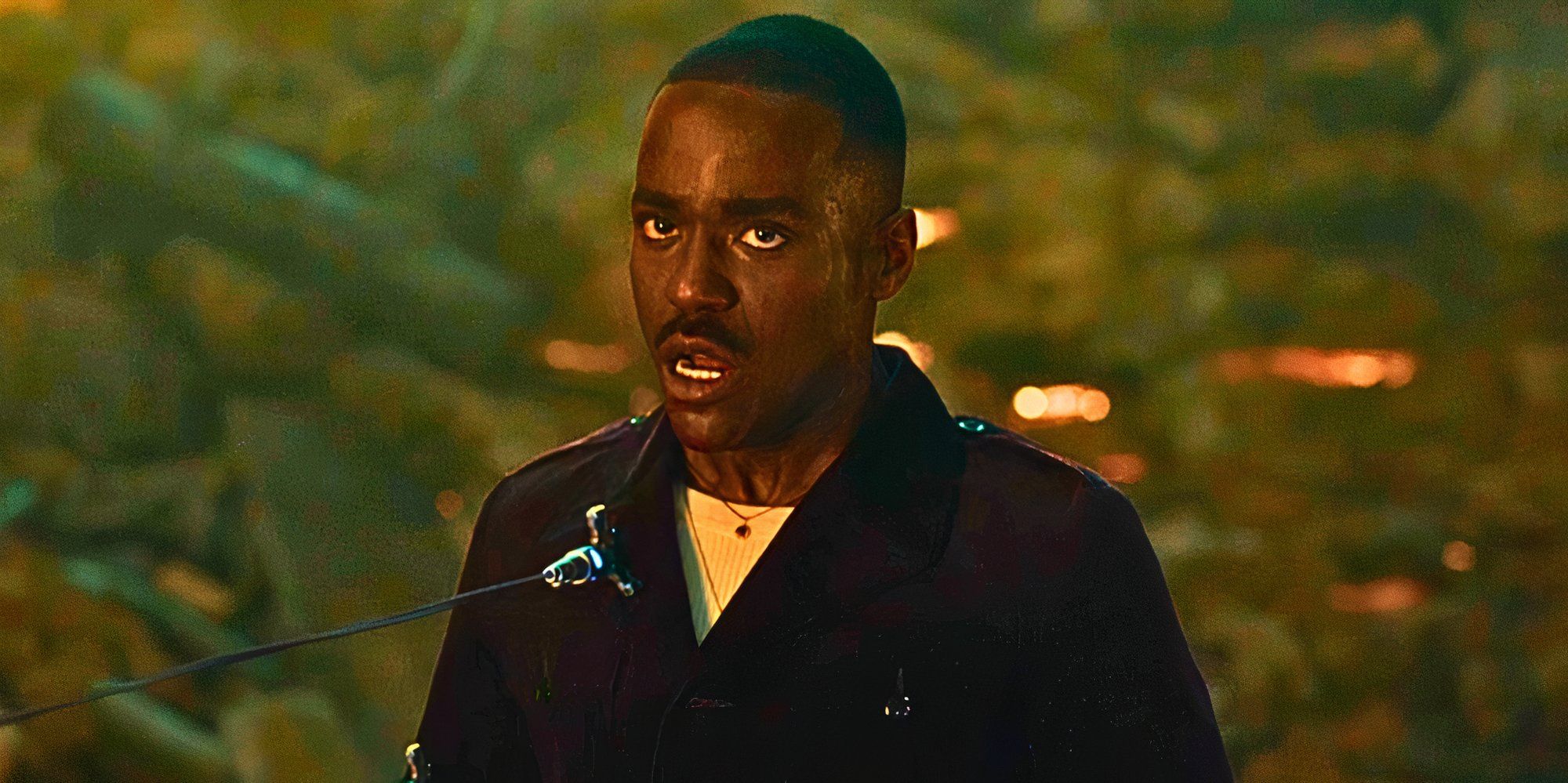Warning: Spoilers ahead for Doctor Who season 14, episode 3, "Boom."
Summary
- Doctor Who season 14's "Boom" stands out as one of the best modern episodes, bringing the show back to its former glory.
- The episode's limited setting challenges Gatwa and Gibson to showcase exceptional talent, making it a standout performance.
- "Boom" offers a smart and suspenseful plot twist that engages both new and old Doctor Who fans, reminiscent of Moffat's previous success.
Doctor Who has produced some excellent episodes through the decades, but "Boom" is one of its finest offerings in almost a decade. The franchise has faltered in recent years, with Chris Chibnall's time as showrunner leading to some controversial additions/changes to the established show canon. So, it's a relief that the Disney era of Doctor Who has managed to restore the property to its former glory. A shining example of this return to form is Doctor Who season 14, episode 3, "Boom." Written by Steven Moffat, "Boom" is the former showrunner's first Doctor Who story since 2017.
"Boom" isn't just one of the best Doctor Who episodes written by Steven Moffat, but it's quickly become one of the better stories of the modern era. Its standalone nature allows the leaders of the Doctor Who season 14 cast to shine, with the Easter eggs and subtle winks to other corners of the fictional universe and ongoing storylines bringing the whole thing together. So soon into Ncuti Gatwa's run as the Fifteenth Doctor, "Boom" sets an incredibly high standard the returning showrunner, Russell T Davies, needs to maintain going forward.

20 Greatest Doctor Who Stories Of All Time, Ranked
Doctor Who has been a fixture on TV screens for 60 years, meaning there are plenty of stories to choose from when picking out the Time Lord's best.
Moffat's "Boom" Concept Brings The Best Out Of Ncuti Gatwa & Millie Gibson
The episode forces Doctor Who season 14's main duo to up their game even further
The setting of "Boom" is intentionally limited, with almost every moment of the story unfolding within an incredibly small area. Removing the safety blankets of the thrilling chases and exotic alien villains means Ncuti Gatwa and Millie Gibson need to approach their respective roles differently. While Millie Gibson is challenged with portraying Ruby Sunday in a challenging environment, Ncuti Gatwa has to embody the Doctor through what is essentially an array of facial expressions. Brilliantly, both actors achieve their task with impressive efficiency and talent.
The entire narrative of "Boom" circles around the fact that the Doctor is standing on a landline and is trying to work out a way of surviving the encounter. On paper, this sounds like a difficult concept for the actors to convincingly to sell for almost 45 minutes straight. However, the slow introduction of other characters, which makes the situation even more precarious, allows everyone involved to flex their acting muscles in a way that would prove much more difficult for some other actors.
While Sethu has a little more agency to act in a traditional manner during "Boom," she still handles the restrictions very well.
For instance, Varada Sethu enters Doctor Who an entire season early, with the actor set to enter the TARDIS as the Doctor's companion in season 15. Sethu does a tremendous job as Mundy Flynn in her Doctor Who debut, and her chemistry with Ncuti and Gibson is a promising sign of what's to come in the show's near future. While Sethu has a little more agency to act in a traditional manner during "Boom," she still handles the restrictions very well.
"Boom" Is One Of The Smartest Doctor Who Episodes Of The Modern Era
Moffat expertly balances various eras of Doctor Who
Another factor that elevates the quality of "Boom" is the intelligence of the plot. While the big reveal of the Kastarions not being real is arguably easy to guess well ahead of time, there is a certain appeal to this. Working out the plot twist before it becomes clear to all the on-screen characters can be very rewarding - and it leads to a more complete viewing experience. However, those familiar with Doctor Who prior to its presence on Disney+ are artfully misled for much longer than new viewers.
When the Doctor is making fun of Mundy for believing the Kastarions are lurking in the mud, he derisively asks, "What, sentient mud? Seriously? Do you know how ridiculous you sound?" The moment allows for a rare moment of dark humor during a dramatic sequence, but the Doctor is quietly making a reference to a former foe. In Doctor Who season 11, episode 8, "The Witchfinders," Jodie Whittaker's Thirteenth Doctor faces the Morax - a species that very much fits the description of "Sentient mud." So, this may cause existing fans watching "Boom" to anticipate the return of the Morax.

Doctor Who Season 14 Beautifully Pays Tribute To Patrick Troughton's Second Doctor
Patrick Troughton's Second Doctor is remembered for an iconic trait, and Ncuti Gatwa's Fifteenth Doctor artfully makes reference to it in "Boom."
Revealing Villengard as being at the heart of the conflict is another brilliant way Moffat offers different ways for new and old viewers to enjoy "Boom." While Moffat mentioned Villengard in the first Doctor Who episode he wrote in 2005, "Boom" is the first time the weapons manufacturer has been at the story's forefront. So, while Villengard may seem like a fresh presence to new Doctor Who fans, the pre-existing fan base may recognize the reference to an episode that's almost 20 years old.
Villengard is first mentioned in Doctor Who season 1, episode 10, "The Doctor Dances."
Doctor Who Hasn't Had An Episode This Good Since "Heaven Sent"
"Heaven Sent" has a very similar structure to "Boom"
Moffat's concept episodes, such as "Boom," are among his best. Before the tale of the Fifteenth Doctor's narrow escape from immolation, Moffat was also responsible for the episode that was previously hailed as the show's finest installment. During his time as showrunner, Moffat wrote Doctor Who season 9, episode 11, "Heaven Sent." The story followed much the same framework of "Boom," but isolated Peter Capaldi's Twelfth Doctor even more than Ncuti Gatwa's Fifteenth during "Boom."
While the 2023 Doctor Who 60th-anniversary specials were also excellent, they're difficult to compare to standard episodes - partly due to the excitement caused by the return of fan-favorite David Tennant as he reprised the role of the Doctor.
Both "Heaven Sent" and "Boom" serve as proof that although Doctor Who does have an established formula, straying from it can be equally effective - if not even more so. Part of the reason why Chris Chibnall's time as showrunner fell short of expectations could have been his decision to always flood his scripts with as many characters as possible. However, Moffat's example of making use of minimalist storytelling can often lead to a much more compelling episode.



